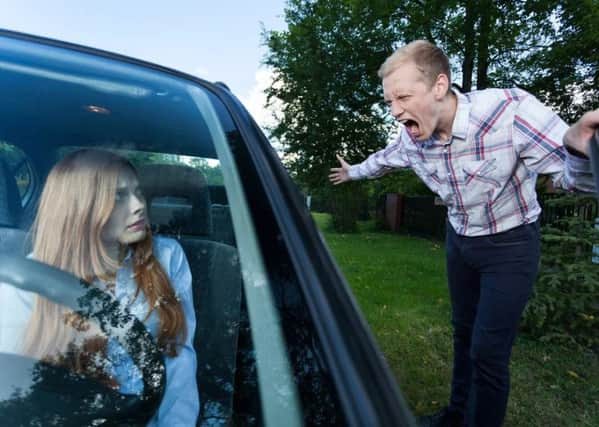Tailgating is the number one cause of road rage


The survey by Accident Advice Helpline also found that 43% of British drivers had experienced road rage during the time they have been driving, while a quarter admitted to experiencing road rage monthly, weekly or every time they drive.
Other triggers for road rage included rude gestures (35 per cent), being cut up in a lane (33 per cent), high speeding drivers (19 per cent) and flashing lights and sounding the horn (17 per cent). However, only 15 per cent of drivers experience road rage after being involved in a collision.
Advertisement
Hide AdAdvertisement
Hide AdThe report, which interviewed over 1,000 British drivers, also revealed that almost a third of drivers believe their driving style changes as a result of road rage - although men at 44 per cent were most likely to alter their driving, compared to 27 per cent of women.
The majority of drivers admitted to responding by using their horns (56 per cent) or swearing (40 per cent). However, 15 per cent of drivers admitted to retorting by tailgating, while more extreme reactions included threatening or verbally insulting the other driver (8 per cent), deliberately driving in an unsafe manner (8 per cent) and throwing something from the car with intent (2 per cent).
Perhaps surprisingly, more female drivers admit to experiencing road rage than men, but more men admit to experiencing road rage every time they drive. 6 per cent of male drivers made the admission, compared to only 4 per cent of women.
The research found that Scotland was the most common country in the UK for road rage to occur, with over 55 per cent of motorists claiming to have experienced road rage.
Advertisement
Hide AdAdvertisement
Hide AdMost disturbing of all, 12% of motorists also admitted that road rage had previously caused an accident.
David Carter of Accident Advice Helpline said: “This survey highlights that road rage is a common problem on UK roads and drivers need to take steps to avoid the potentially dangerous ‘red mist’ descending.” “Changing the way you drive to teach another driver a lesson is not a solution and unfortunately it can lead to accidents with tragic consequences.”
“Motoring organisations, insurers, charities and the like all offer sound advice on combatting road rage to help drivers stay safe.”